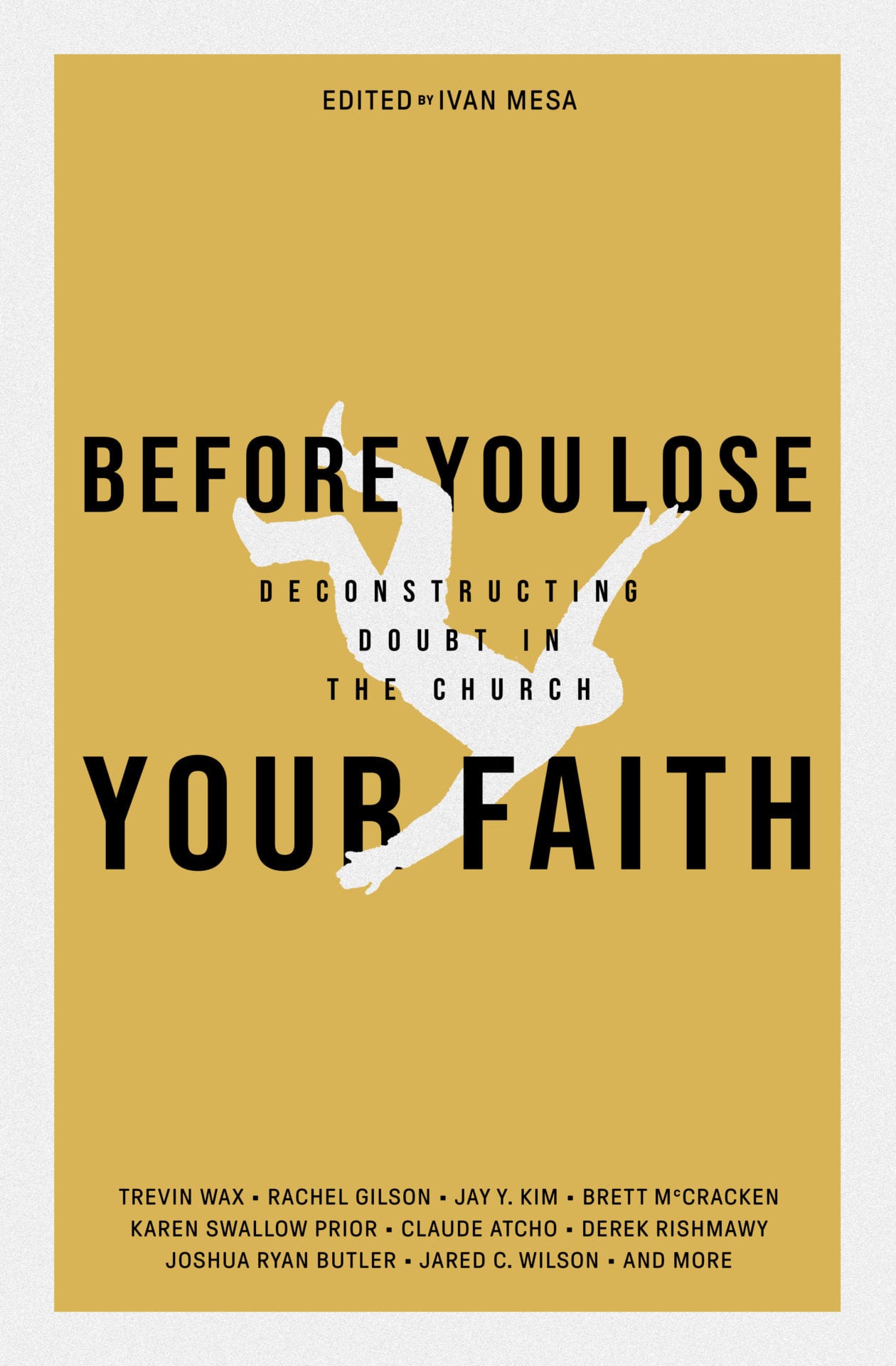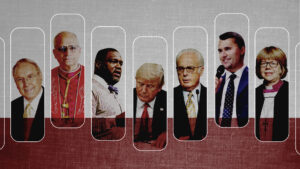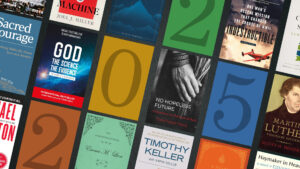Theological education matters because of the place it has in God’s will for his people. God has given gifts of ministers to his people for their blessing and for their good. We sometimes think the gift is the ministry to the minister, but that’s not how God puts it in Ephesians 4. There we are told the Lord Jesus Christ gives gifts of ministers to his people, so that they can be built up in the unity of the faith; so that they can be protected from false teaching in its various forms. . . . That’s where theological education fits in. And that’s why it must be deep, it must be broad, and it must help them be the best possible gift they can be.
So said Mike Ovey, principal of Oak Hill Theological College in London, capturing the mission and purpose of the school he has led for nearly a decade. Sadly, and without warning, Mike died this past Saturday evening, leaving behind his wife, Heather, and their three children: Charlie, Harry, and Ana. It is an understatement to say Mike’s death was an absolute shock to the close-knit seminary community at Oak Hill as well as to the wider evangelical world. Countless students, colleagues, and friends continue to grieve such a great loss to the church in the UK and in America. To many the timing seems premature. Why Mike Ovey . . . and why now, O Lord?
Tributes to Mike are already circulating the internet, many of which (like Lee Gatiss’s) do an excellent job outlining Mike’s training as a patristics scholar and systematician, his rise to the position of principal at Oak Hill, his influence as an evangelical leader within the Church of England, and his literary contributions. I won’t rehearse those tributes here. Instead, I want to introduce you to the servant leader I and so many others believe embodied Ephesians 4 more than anybody else.
Three Pillars
For the last two decades Mike has been defined by one passion: bringing reformation back to churches in the UK. Certainly this is a herculean task, and many before Mike have given up. But Mike was undying in his determination, unflinching in his resolve. For the past two decades Mike valiently upheld three pillars on which British evangelicalism rests.
On the one hand, Mike has been holding the line on orthodoxy while others, even within the church, have bought into liberalism. To hear Mike was to guarantee a lecture on the Creator-creature distinction. Students laugh because everything somehow, in some way, tied back to this distinction, whether it was a quote from P. G. Wodehouse, Mike’s steady diet of fish and chips, or his favorite theologian, Hilary of Poitiers. Students teased him for this, and Mike laughed with them, but underneath the laugh was a conviction: Unless church leaders understand the significance of the Creator-creature distinction, they will embrace liberalism’s man-centered starting point. And this, Mike would tell you, is the beginning of the end of Christianity.
But that was not the only pillar Mike kept steady. If liberalism threatened from the left, biblicism attacked from the right. Before Mike became principal at Oak Hill College he was a humble tutor in doctrine. Yet it’s not unintentional that Mike insisted on lecturing in doctrine throughout his term as principal, despite countless other pressing demands on his desk. Of course Mike loved theology. But he also had a serious agenda: Students need to know they need theology in the church.
As well-intentioned as many evangelicals may be, far too many are suspicious of doctrine and with it theological education. Whether it was a lecture on Trinitarian theology in the Nicene Creed or one of his famous mind-maps on theological method (mind-maps, by the way, that would have made Francis Turretin drool), Mike demonstrated that doctrine was the very artery of the church; if severed the church will bleed to death. Of course, Mike stopped this bleeding on numerous occasions. He refused to compromise a biblical view of gender when church leaders believed it inconsequential to bend to the culture’s acceptance of feminism and homosexuality. He defended penal substitutionary atonement when many churches became allergic to divine wrath and the biblical affirmation of propitiation. Mike unashamedly stood steadfast upon the Reformed doctrine of justification when the winds of the New Perspective on Paul and the Federal Vision threatened to blow it down.
Yet I would add a third pillar: Mike fearlessly countered the agenda of a secular culture with the gospel, exemplifying what a public theology might look like. As much as Mike quoted Hilary, Calvin, and Turretin, his public theology was deeply influenced by Dietrich Bonheoffer. In many ways Mike echoed Bonhoeffer for 21st-century ears, warning those in the West against “mixing Christian grace with the world’s idea of grace, and at worst, substituting Christian grace for the world’s idea of grace.”
I could go on, but it should be clear by now that Mike Ovey was a reformer for the 21st century—a reformer with a towering intellect and an unflinching conviction for the truth.
No Ivory Tower Theologian
One would think such a leader, with such an intellect, would be unreachable in his ivory tower. Not so. The day Mike offered me my position at Oak Hill, he came to my room, sat down with me and my wife, Elizabeth, and said, “We are bringing about reformation in the UK.” And then said, rather tongue-in-cheek: “And we’re nearly there.” It was hard to resist a theologian with that kind of humor! More seriously, Mike was asking me to come and help him raise up theologians who would bring about reformation in the church for the next generation.
But I simply wasn’t prepared for what happened next. Shortly after arriving, Mike sacrificed his own time on a regular basis in order to invest in me. We had countless conversations over lamb shish (another favorite meal of his), as Mike batted around the soteriology of Thomas Cranmer or provided profound pastoral counsel as I shared my own frustrations and concerns.
I don’t think I can stress enough just how much Mike gave of himself. I will never forget staying after chapel as Mike checked in to see how life was going. For some reason I mentioned how much I had recently enjoyed reading The Revelation of God by Peter Jensen, former principal of Moore Theological College in Sydney, whom Mike had known personally. I asked, “Why didn’t Jensen write more books?” Mike’s humbling response put everything into perspective: “It’s because he invested so much time in his students instead. Matthew, his students and colleagues were his books. And he was prolific.”
Gift to the Church
Mike was the same. I’m sure I speak for the experience of all my colleagues when I say that what has struck me most the last two days is just how grieved students are that Mike has died. “Mike spent months counselling me after the death of our child,” said one student. “Mike is the reason I continued my theological education when I was nearly ready to get in the car and drive home,” said another. “Mike offered to watch our kids when we were sick on Christmas day.” I’ll never forget that last one, since it came from my wife. She just couldn’t believe these words were coming from the principal. So humble, so servant-hearted, so much like Jesus Christ.
Mike devoted his life to training future ministers to be the best possible gift to the church. But it’s now so clear that Mike himself was the best possible gift to the church.
Mike is now with the Lord. We, however, are bringing about reformation in the UK. And we’re nearly there.
Editors’ note: If you would like to read and listen to Mike Ovey, please visit this Credo Magazine page, which will make available many of his publications in the days ahead.
Free Book by TGC: ‘Before You Lose Your Faith’
 Many young people are walking away from Christianity—for reasons ranging from the church’s stance on sexual morality, to its approach to science and the Bible, to its perceived silence on racial justice.
Many young people are walking away from Christianity—for reasons ranging from the church’s stance on sexual morality, to its approach to science and the Bible, to its perceived silence on racial justice.
TGC’s book Before You Lose Your Faith: Deconstructing Doubt in the Church is an infusion of hope, clarity, and wisdom in an age of mounting cynicism toward Christianity.
For anyone entering college or the workplace and looking for a timely reminder of why Christianity is good news in a skeptical age, make sure to get your FREE ebook Before You Lose Your Faith today!


































